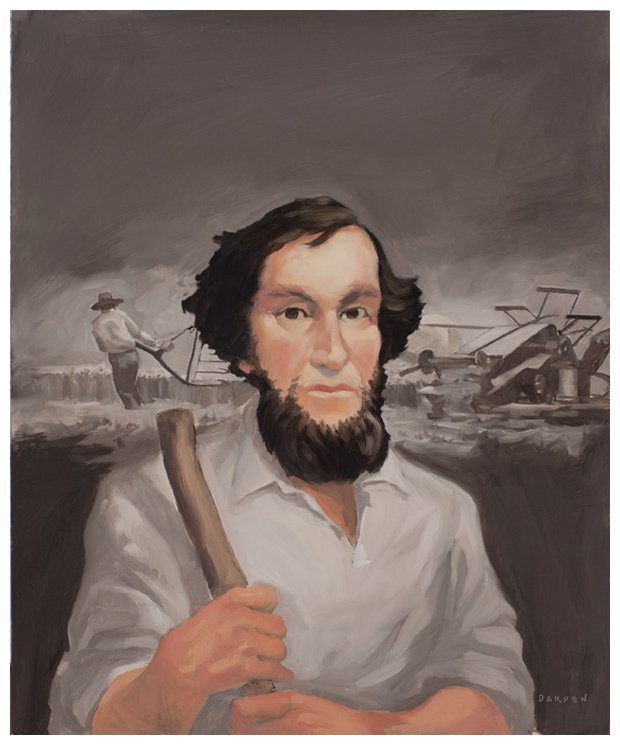Cyrus awarded a Gold Medal for his invention
Farmers were wary of change and uneasy about a device that was later described as "a cross between a wheelbarrow, a chariot, and a flying machine." Unfazed, McCormick spent ten years perfecting his invention, obtaining his first patent in the process (1834). He also used innovative commercial strategies, such as flexible credit requirements for purchases, written performance promises ("15 acres a day"), easily accessible spare parts, and public relations campaigns that informed rural areas about the advantages of technology.
The mechanical reaper finally became popular starting in 1841, to the point where McCormick was later compelled to shift production out of the blacksmith shop on his family farm and into a factory in Chicago (1847). Because of McCormick's invention, the Midwest's grasslands could now serve as the country's "breadbasket."
Because of his invention, he rose to fame and recognition. He proceeded to England, where he was awarded a Gold Medal in London's renowned Crystal Palace. Regrettably, a fire in 1871 completely destroyed Cyrus's business. Despite sustaining such a significant loss, the family restored the business, and it kept expanding and prospering. He continued to pursue research and innovation. Cyrus McCormick created a new reaper design in 1872 that was used to tie the bundles together with twine.
An interesting fact about Cyrus McCormick is that he was inducted into the Junior Achievement US Business Hall of Fame in 1975 as a result of his noteworthy work for farmers.






